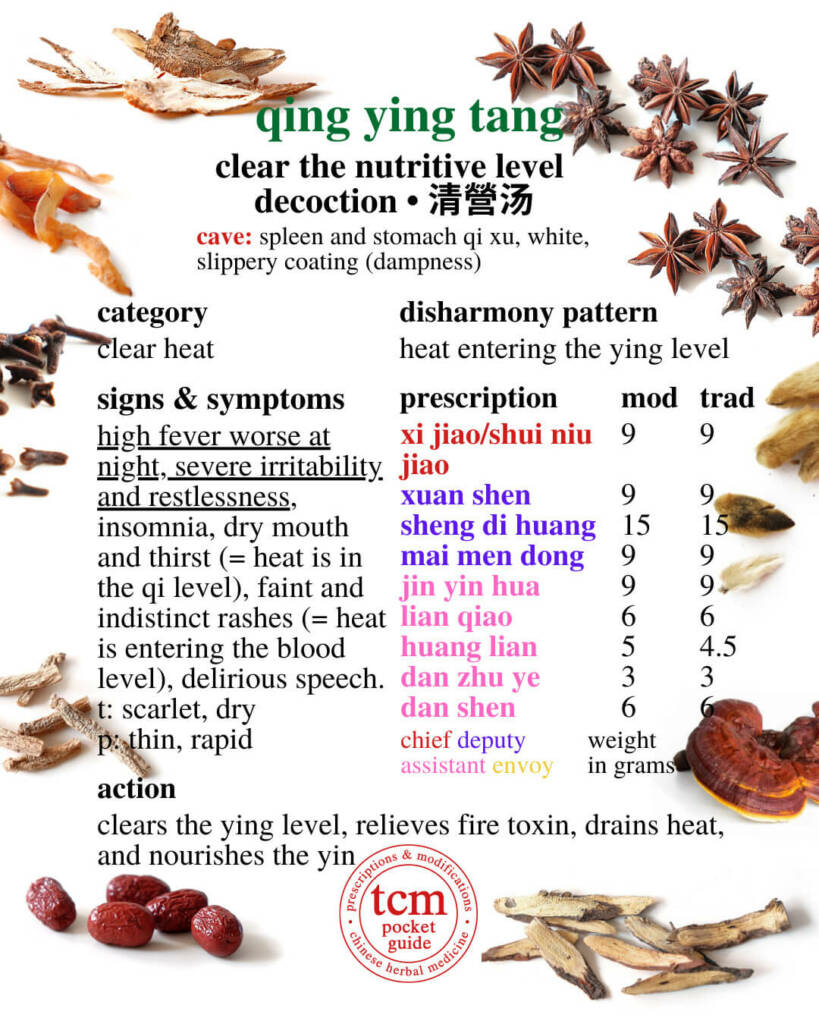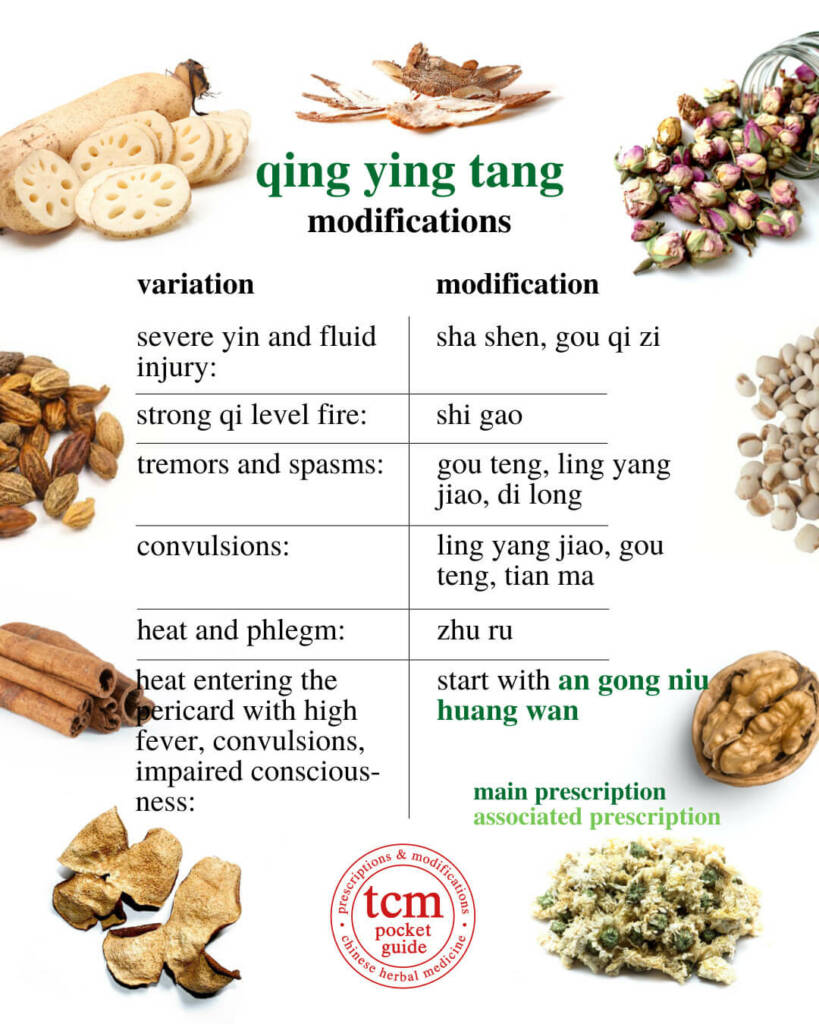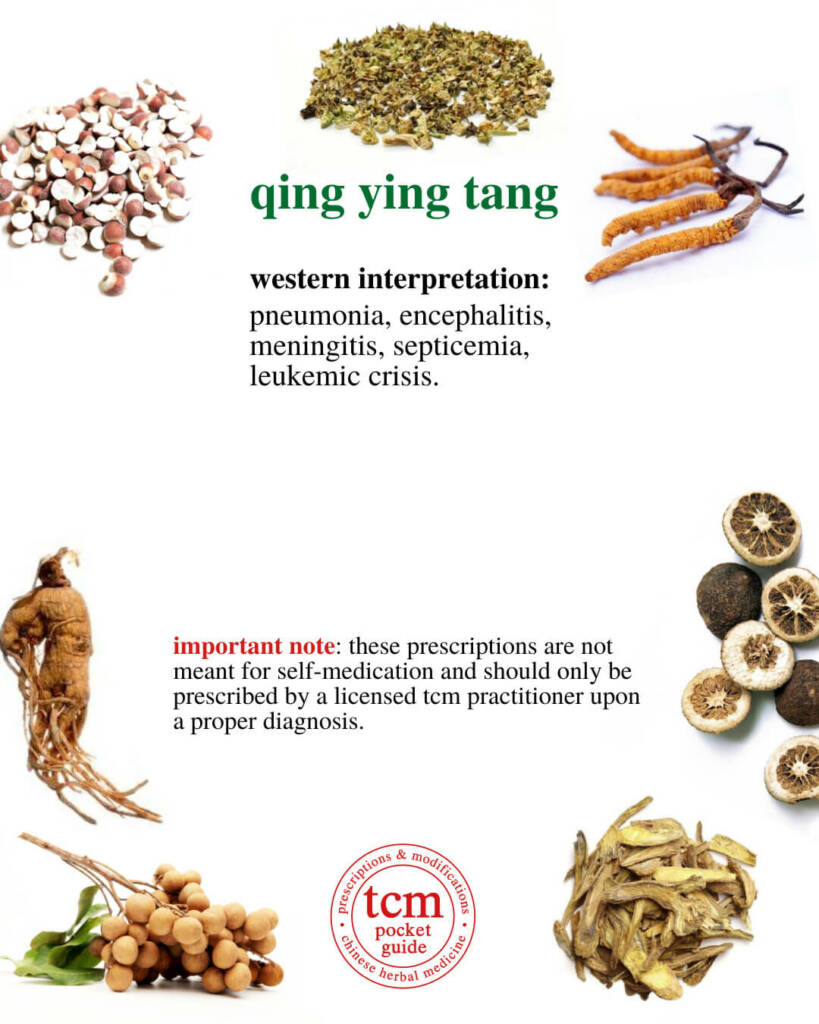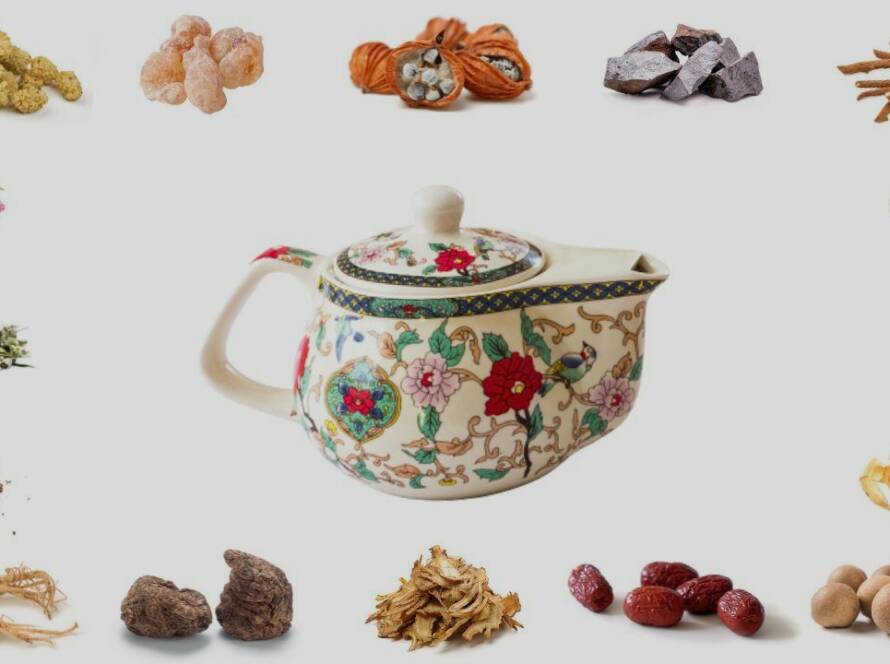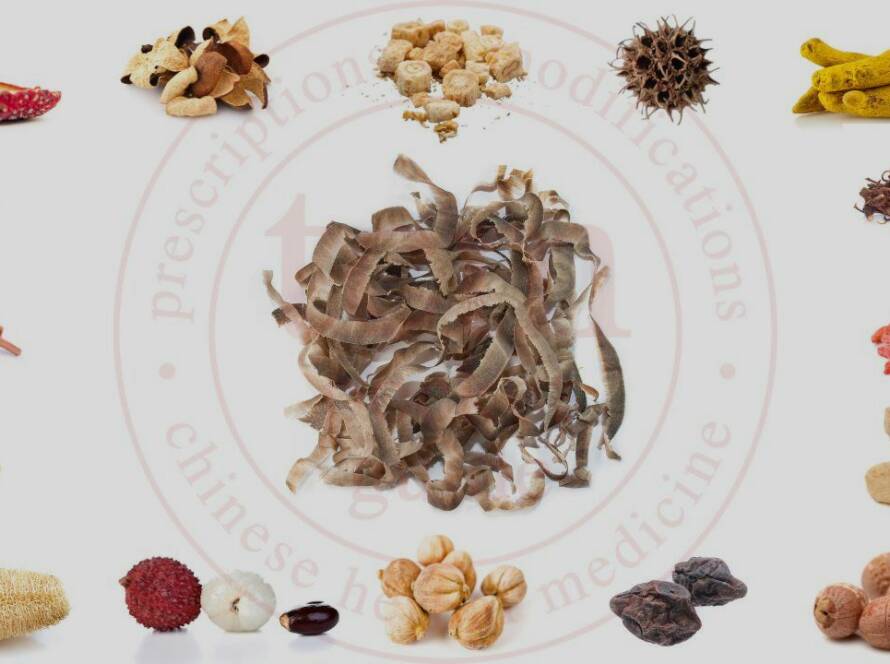qīng yíng tāng is used for patterns with
patterns of heat entering the ying level, ying level heat attacking the pericardium.
symptoms indicating the use of qīng yíng tāng
high fever that is worse at night, severe irritability and restlessness, insomnia, dry mouth and thirst, faint and indistinct purpura and erythema, dizziness, vertigo, delirium, delirious speech.
western interpretation of qīng yíng tāng
pneumonia, encephalitis, meningitis, septicemia, leukemic crisis.
explanation of the mechanism
this is heat entering the nutritive level. when a strong pathogenic influence enters the nutritive level, there will be a high fever; because the yin (associated with night) is affected, the fever worsens at night.
heat also storches the heart and disturbes the spirit, causing irritability, restlessness, and in extreme cases, delirious speech. the presence or absence of thirst is an indication of wether heat remains in the qi level, or has moved to the nutritive level. thirst results from a plundering of the stomach fluids. its presence indicates that heat remains in the qi level. once the heat has almost completely moved to the nutritive level, the thirst will disappear.
a yellow tongue coating may also be found in patients where heat lingers in the qi level. the faint, indistinct rashes indicate that heat is on the verge of entering the blood level. the scarlet, dry tongue, and the thin, rapid pulse are important signs of heat in the nutritive level.
(bensky & barolet)

created with love in switzerland 🇨🇭
feel free to share this content:


